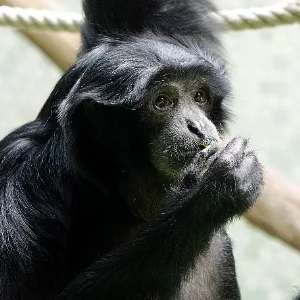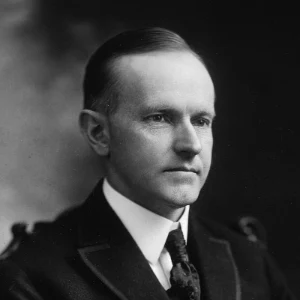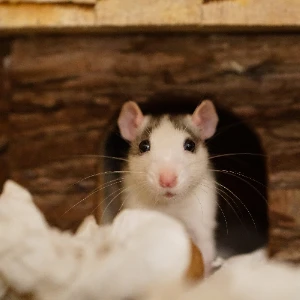Related Links
The Coolidge Effect - Honey Don’t Blame Me, Blame the Coolidge Effect
Updated on 17th December 2022
The Coolidge Effect Definition
Ready to get freaky? Because this psychological effect will demonstrate the risqué aspects of human nature. Officially called the Coolidge Effect, it essentially refers to the propensity of individuals to have a renewed sexual lust after being presented with novel partners who could be potential new mates.
More importantly, it also refers to the tendency for people to feel habituated (a fancy word for getting bored) with their current sexual partners, where they will only regain sexual drive when a new potential partner appears. Although this effect is present in both males and females, men tend to display it more significantly than women.
Although it may be difficult to make any definite conclusions on this point, sociologists and other psychological specialists have argued that the Coolidge Effect may explain why humans are so sexually driven, as the need to procreate is something all humans share. Furthermore, it has also been a desire that many religions have consistently tried to quell – without much success.

Fun fact - The Coolidge Effect is not unique to humans. In fact, it has been observed in almost all mammal species around the world. It can be likened to some ancient mechanism inbuilt within humans and other mammals to promote reproduction and the survival of a given species.
Considering the universality of the Coolidge Effect in humans and other mammals, we can confidently assume that it has been integrated into our systems during evolution to serve some survival-based function.
What is the Coolidge Effect?
On the surface, the Coolidge Effect may seem like a raunchy human tendency to want to procreate as much as possible, but in actuality, it serves a vital role in human evolution. If the goal for each species were to reproduce and have as many offspring as possible, then it would be counterintuitive to only remain with a single mate throughout one's life.
Due to the advancement of culture and deep human values such as loyalty and care, we have opted to stay faithful to our partners through unions such as marriage, where adultery is socially unacceptable and even punished at times. However, even though humans have opted to behave this way, it does not mean that is how our biology wants us to act, and the Coolidge Effect is indisputable evidence for this.

Essentially, the Coolidge Effect can be boiled down to a mechanism that exists as a result of evolution to give humanity the biggest possible advantage for survival: to create as many babies as humanly possible.
Research into the underlying mechanisms of the Coolidge Effect has found that the tendency to get bored of current sexual partners while receiving a renewal of sexual lust from new partners is related to an increase in dopamine levels.

In the brain, dopamine plays several roles, but its primary responsibility is to regulate how we perceive pleasure and reward. Basically, because of the Coolidge Effect, when we are with a current partner, our initially high levels of dopamine will slowly decrease over time, resulting in a lack of interest, or habituation, in that partner. However, suppose we are presented with a new potential partner. In that case, our dopamine will receive a massive spike, creating a biological impulse to forego our current partner and try to place them with another potential person.
History of the Coolidge Effect
The Coolidge Effect is named after a funny story from the 1920s involving US president Calvin Coolidge (1872-1933), who was visiting a farm with his wife. During their visit, Mrs. Coolidge walked through the chicken yard and saw that the rooster frequently mated with the hens. Upon seeing this, she asked the farmer how often the rooster would mate, to which she was told, "Dozens of times each day." Jokingly, Mrs. Coolidge said, "Tell that to the President." When he heard the joke, the President, Mr. Coolidge, asked, "Same hen every time?" To which the farmer replied with, "Oh no, Mr. President, a different hen every time." And then, with his own joke, the president said: "Tell that to Mrs. Coolidge."
The term was first put into the mainstream by American Ethologist Frank A. Beach (1911-1988), who wrote in a 1974 letter that he had coined the term in 1958. Before that, when the title "Coolidge Effect" did not exist, Beach had observed the phenomenon when studying instances where, if presented with novel mates, rats would constantly pick the new one over their previously habituated mate. Following this discovery, numerous studies were conducted to see if this could be replicated and found that it was almost universal among mammals. Whether in cows, chickens, or even lions, most animals would possess some form of the Coolidge Effect.

Case Examples of the Coolidge Effect
Case 1: A case could be made for how the Coolidge Effect had turned the adult industry into a multi-billion-dollar business. According to the Coolidge Effect, a person will receive a surge of dopamine when faced with a new potential mating partner in real-life. One significant problem with this evolved behavior is that it did not consider the implications of the internet and digital technology that can provide an endless number of online mates found in adult videos. Hence, once a person has satisfied their "reproductive functions" online, their pleasure chemicals will begin to reduce due to habituation. It is only when they come in contact with new sexual stimuli that their dopamine will climb back to soaring heights. With millions of adult videos permeating the web, there is no shortage of apparently willing mates, causing the Coolidge Effect to boom and influence the behavior of millions of unfortunate victims.
This is vital to consider in modern-day society as constant dopamine stimulation can cause significant harm to our minds and bodies, in some cases even leading to addiction. Here, overstimulation of dopamine can cause depression, anxiety, and even change how we act and behave around others. In severe cases, it can remove our ability to form meaningful bonds and connections with others, where our minds become filled with perverse and unhealthy thoughts.

Case 2: After its discovery, researchers investigating the effects of the Coolidge Effect also found that we possess a biological mechanism that works to directly counter its influence on our minds and behavior. Suppose the Coolidge Effect is a biological impulse that pushes us to reproduce as much as possible. In that case, it may come as a surprise that we possess a more recently evolved impulse that pushes us to form sustainable emotional attachments. Ever heard of the Honeymoon Period of a relationship? Well, this dreamy phase of a romantic bond is driven by an opposing neurochemical process from the Coolidge Effect that drives pair bonding and attachment. Essentially, the Coolidge Effect could be considered a primitive "spray and pray" strategy, while attachment cues serve a more adaptive function in human evolution.
To help you understand this better, in the animal kingdom, most babies reach adulthood in only a short amount of time, which functions to protect them from the dangers of the wild. However, it takes humans almost two decades before they can be considered fully mature. With this in mind, it would make sense from an evolutionary perspective that the human child has two strongly bonded adult parents to take care of it for as long as possible. This is where attachment cues arise as they promote child development and survival instead of simply impregnating and leaving. Think of it as a sort of quality versus quantity argument, and where the Coolidge Effect uses dopamine to influence behavior, attachment cues use oxytocin, otherwise known as the love molecule, to sustain bonds.

Case 3: An experiment conducted in the 1980s led to the discovery of an interesting fact about the Coolidge Effect and how it relates to our sense of smell. Here, the researchers used a two-choice odor preference test on rats which essentially is an experiment that is used to see if a rat's decision-making processes are influenced by olfactory factors (sense of smell) or not. More specifically, they aimed to see whether male rats in a monogamous mating relationship (e.g., with a singular mate) would prefer the odor of a novel rat over the rat with which they had all their mating experience. In previous studies investigating this effect on female rats, researchers found that they would predominantly pick the rat with which they had all their previous experience and discard the novel mate.
However, when it was time for the male rats to choose, the experiment demonstrated that they would always display a preference for the odor of the novel mate instead of their current one. The difference between the male and female rats is that the odor from a novel mate would trigger a dopamine spike for males, but this would not be observed in females. Moving beyond this study's contexts, these findings suggest how human behavior is largely driven by impulse and not free will. According to the Coolidge Effect, since we are so easily influenced by our dopamine and other "feel good" chemicals, do they have the most control over our thinking and behavior, or do we still retain some conscious control over these processes?
A Beautiful Quote
- Daniel Goleman
Questions and Answers
How can I overcome the Coolidge Effect?
The waning interest in a partner could signify the Coolidge Effect playing out. To overcome the harmful impact, you can work towards your relationship by being more generous with your time and support. Also, it could help to try out new experiences, such as having after-dinner walks or taking up a hobby together. Switching things around and adding further spice to your monotonous routine can make all the difference.